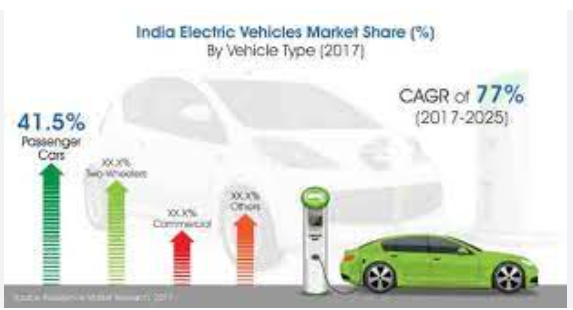Electric Vehicle Industry in India
The Electric Vehicle (EV) industry in India is experiencing rapid growth, driven by government initiatives, increasing environmental concerns, and advancements in technology. This article explores the current state of the electric vehicle industry in India, its growth potential, challenges, and future prospects.
Overview
India, the world’s fourth-largest automobile market, is witnessing a significant shift towards electric mobility. The government has set an ambitious target of achieving 30% electric vehicle penetration by 2030. This push towards electric vehicles is driven by the need to reduce air pollution, decrease dependence on fossil fuels, and combat climate change.
Government Initiatives
The Indian government has introduced several initiatives to promote the adoption of electric vehicles, including:
- Faster Adoption and Manufacturing of Electric Vehicles (FAME) Scheme: The FAME scheme, launched in 2015, provides incentives for the purchase of electric vehicles and the development of EV charging infrastructure.
- National Electric Mobility Mission Plan (NEMMP) 2020: The NEMMP aims to achieve national fuel security by promoting hybrid and electric vehicles in the country.
- Phased Manufacturing Programme (PMP): The PMP outlines a roadmap for the localization of EV components to reduce dependence on imports and boost domestic manufacturing.
In addition, several state governments have introduced their own EV policies, offering incentives such as road tax exemptions, registration fee waivers, and subsidies for the purchase of electric vehicles.
Market Segments
The electric vehicle market in India comprises several segments:
- Two-wheelers: Electric two-wheelers, including scooters and motorcycles, hold the largest share of the Indian EV market. Companies like Hero Electric, Okinawa, and Ather Energy are leading players in this segment.
- Three-wheelers: Electric three-wheelers, such as e-rickshaws and e-autos, are gaining popularity for last-mile connectivity and short-distance commutes. Mahindra Electric and Kinetic Green are key players in this segment.
- Passenger cars: Electric passenger cars are gradually gaining traction, with companies like Tata Motors, Mahindra Electric, and Hyundai offering electric variants of their popular models.
- Commercial vehicles: Electric buses and trucks are being deployed for public transportation and logistics, respectively. Companies like Olectra Greentech and Ashok Leyland are active in this segment.
Charging Infrastructure
The development of a robust charging infrastructure is crucial for the widespread adoption of electric vehicles. The Indian government has announced plans to install 2,636 charging stations across 62 cities in 24 states and union territories under the FAME II scheme. Private companies such as Tata Power, EESL, and ABB are also investing in the development of EV charging networks.
Challenges
Despite the growth potential, the electric vehicle industry in India faces several challenges:
- High upfront costs: Electric vehicles are currently more expensive than their conventional counterparts, making them less accessible to the masses.
- Limited driving range: The driving range of electric vehicles is limited compared to petrol or diesel vehicles, which may lead to range anxiety among consumers.
- Inadequate charging infrastructure: The current charging infrastructure is insufficient to support a large number of electric vehicles, especially in smaller cities and rural areas.
- Dependence on imports: India heavily relies on imports for EV components such as batteries and motors, which increases the cost of production.
Future Prospects
Despite the challenges, the electric vehicle industry in India has immense growth potential. The government’s push towards electric mobility, coupled with increasing consumer awareness and falling battery prices, is expected to drive the market growth. According to a report by NITI Aayog and Rocky Mountain Institute, India’s EV market could reach Rs 50,000 crore by 2025, with annual sales of 10 million units.
Several global automakers are also investing in the Indian EV market. For instance, in 2021, Tesla announced plans to enter the Indian market, while Hyundai launched the Kona Electric, the country’s first long-range electric SUV.
The electric vehicle industry in India is at a nascent stage but holds immense potential for growth. With supportive government policies, increasing consumer awareness, and advancements in technology, India could become a global leader in electric mobility. However, addressing the challenges related to charging infrastructure, battery technology, and local manufacturing will be crucial for the sustainable growth of the industry.


